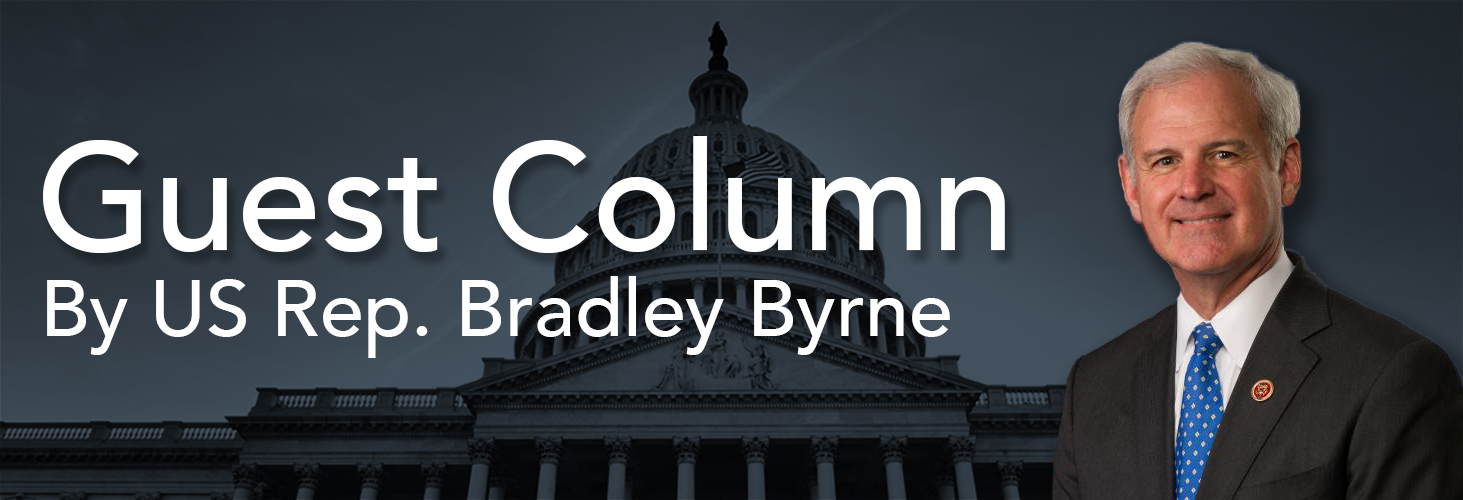By U.S. Representative Bradley Byrne (AL-1)
Whether you are from Brewton, Frisco City, or Robertsdale, you probably remember the summer of 2010 and the BP oil spill. The scenes on our Alabama beaches were heartbreaking as oil glistened in the water and tarballs washed ashore.
From the waitress at the restaurant in Atmore to the gas station owner in Loxley, families and small businesses from throughout Southwest Alabama were negatively impacted by the lack of tourism. Many parts of our area are still dealing with economic and environmental challenges brought on by the oil spill.
That’s why I was cautiously optimistic when I learned the Department of Justice and the five Gulf States had reached a settlement agreement with BP to cover penalties and damages associated with the oil spill. The total settlement was worth $18.7 billion, making it the largest settlement ever between the United States and a single company.
Unfortunately, as my staff and I began to look into the details of the settlement, we realized that Alabama’s coastal communities were getting a bad deal. Only around $1.8 billion of the total settlement would be directly spent in Alabama. Even worse, over half of the money is slated to go directly into the state’s General Fund instead of flowing to our coastal areas.
Now I understand that the State of Alabama is currently in the midst of a budget crunch, but I do not believe money from a natural disaster on the Gulf Coast should be used to fix a man-made “disaster” in Montgomery. That money should be allocated for projects which meet the needs of Coastal Alabama.
Just as bad, too much of the total settlement money is going to be under the control of federal regulators in Washington, like NOAA – the same federal agency that is responsible for our drastically shortened Red Snapper season. I certainly don’t trust NOAA and other agencies from the Obama administration with the settlement money.
Here’s why this is so frustrating. In 2012, Congress, led by Gulf Coast congressmen like Alabama’s own Jo Bonner, passed the RESTORE Act. This landmark legislation created a clear framework to ensure that money from any BP settlement would flow directly to communities on the Gulf Coast.
The RESTORE Act specifically guaranteed local decision makers would control how the money was spent. The bill created the RESTORE Act Council, including local officials from Baldwin and Mobile counties, which would allocate the funds toward projects of particular need.
Sadly, instead of directing money toward the RESTORE Act process, the settlement puts money toward the Natural Resources Damages Assessment (NRDA) program. This program is governed by a board of trustees that includes too much influence from the federal government and not enough input from the people on the Gulf Coast who were actually living this nightmare.
I am also very frustrated by the level of secrecy surrounding the settlement. BP, the Justice Department, and the Gulf states all agreed to put the settlement under a confidentiality order, which prevents the details of the settlement from being made public. A document meant to remedy the needs of the public should be available in its entirety for the public to consume and debate.
At the end of the day, communities on the Gulf Coast are the ones who were directly hit by the oil spill, and it is a mistake to hand control of the settlement money over to the state and federal governments instead of to our local coastal communities.
This settlement was a major opportunity to bring some much needed closure to our area, but sadly it seems like that opportunity was missed. The families and small businesses in Southwest Alabama deserve better.
Congressman Bradley Byrne represents Alabama’s First Congressional District.











































